I was able to watch this movie because of a program my local movie theaters are doing; they banded together in order to distribute new releases for which you can buy virtual movie tickets. I got an online movie ticket and supported my local theater all without leaving my home. Even though it wasn’t the thrill of going to the movies, it was the next best thing. If your city does something similar, it might be worth checking out!
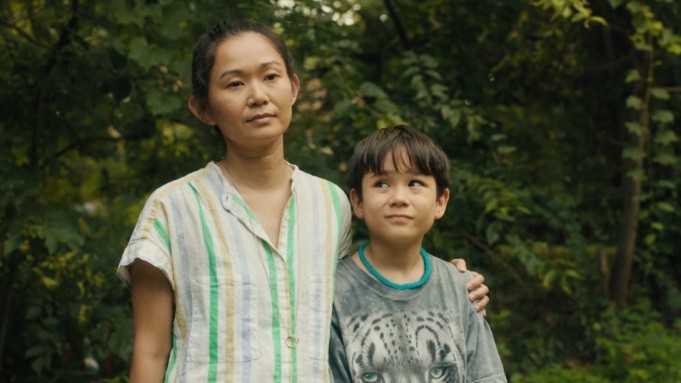
Driveways is about an Asian American family who moves into a dead relative’s home in order to clean it out. The family is made up of a mom, Kathy (the estranged sister of April, the late relative), and her son, Cody. Though it goes back and forth between both characters’ points of view, this seems to primarily be Cody’s story. We understand the predicament they find themselves in mostly through his eyes. It’s also a story of acceptance, friendship, and the struggle of being an outsider. Driveways is a nuanced portrait of an Asian American family, something you don’t always see at the movies.
They befriend their loving Korean War veteran neighbor, Del, who is significantly older than them. He’s played by the late Brian Dennehy. This was one of Dennehy’s last movies and he delivers (along with Hong Chau and Lucas Jaye) a memorable performance in this compelling and moving film.
So, what was so enjoyable about Driveways?
The Powerful Subtlety
Themes of loss, decay, and regret are treated with respect and aplomb. Director Andrew Ahn gently guides the audience towards understanding the implications of losing a family member—in this case, a family member who left behind not only a fraught sibling relationship but also a hoarder-level amount of belongings to sort through. In some ways, cleaning the house is Kathy’s way of repairing the broken relationship with her sister. By taking on the task, sifting through all of April’s possessions, and staying in her home, she learns more about her sister than ever before. They didn’t know each other much as adults, but by bonding through her sister’s earthly possessions Kathy became friends with April from beyond the grave. The subtle message of understanding an eccentric family member and accepting them for who they are comes through.
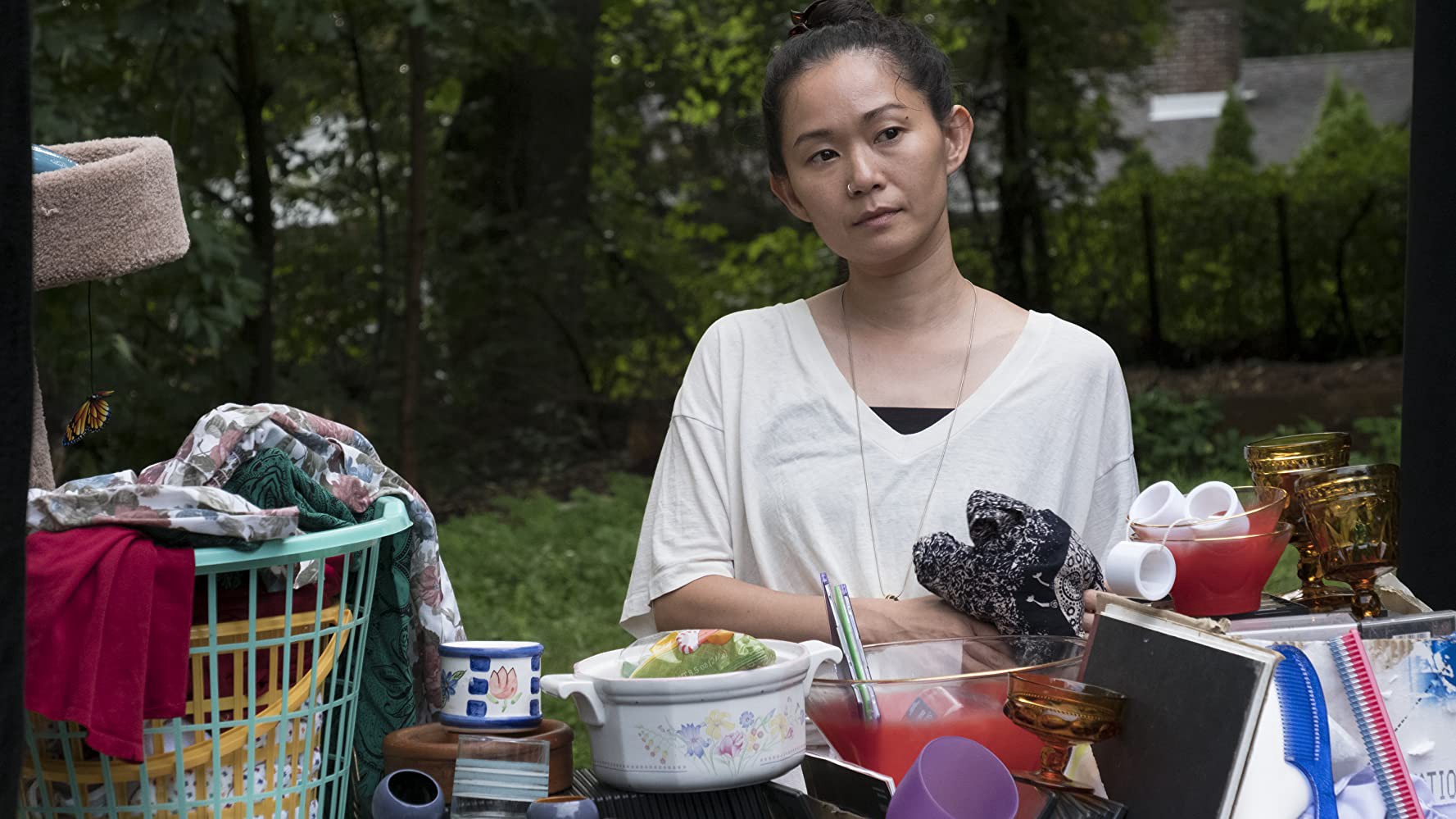
The Gentle Simplicity of the Story
Not much happens in Driveways, taking more from everyday life than from a typical movie structure. Aside from minor difficulties, there’s no major external conflict in the movie. Instead, there are major internal conflicts. Those take the shape of feelings of regret, and that simply being alive is a conflict in its own right. The son, Cody, becomes friends with a neighbor, but his mom is also struggling emotionally with the weight of the house and its financial implications. Later, Cody struggles with fitting in and finding a play partner. He eventually finds one in their neighbor Del and they strike up a May-December friendship. Del’s internal conflict is his fear of aging and the regret he feels about not supporting his daughter as much as he could have when she came out as a lesbian many years before. These issues are not fantastical; they’re common problems that tap into a broader picture of simple, yet very human, experiences. The simplicity of the story and the time dedicated to each character allows us to follow their struggle.
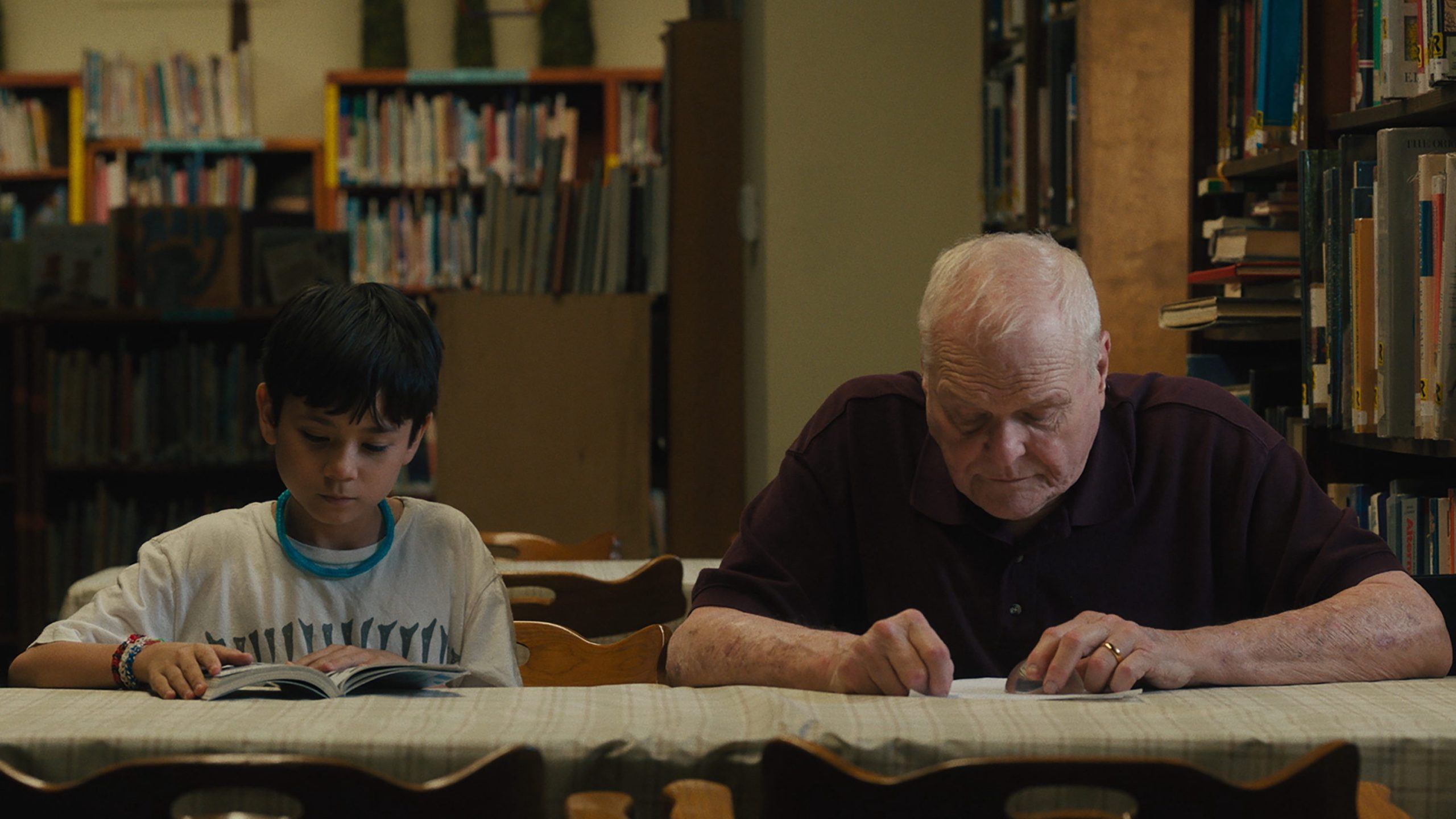
The Lush Setting and Evocative Score
Shot in Poughkeepsie, NY, the backdrop of Driveways is gorgeous: green, lush, and full of bucolic shots of a pleasant summer. The richness of the nature surrounding them only enhances the powerful relationships. The movie almost seemed like it was lit through a green filter, creating a relaxing tone. The green tone could also symbolize the internal growth each character makes. Kathy decides she might want to stay in the house, Cody is no longer scared of playing with friends his own age, and Del accepts a change in his life. The setting, therefore, functions as a vehicle for the characters.
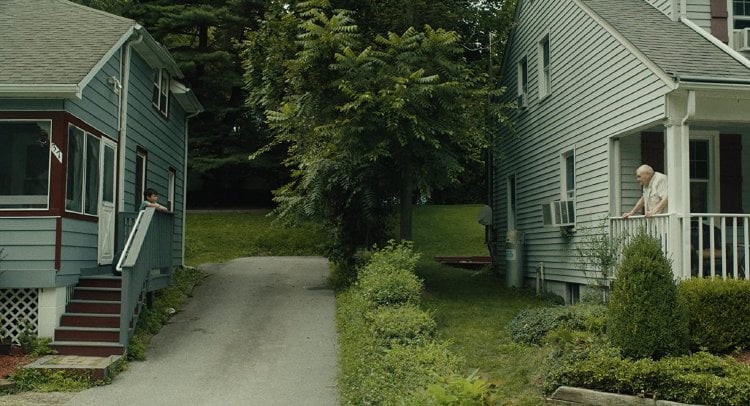
The score was a pleasant surprise, much like the exterior; it created an ambiance of serenity, simplicity, and emotion. Composer Jay Wadley manages to evoke the same feelings of growth, struggle and regret that the characters go through.
Through subtle thematic development, patient storytelling, and the surrounding setting and musical score, Andrew Ahn makes Driveways a gentle yet powerful movie. If you like indie films, flock to this one!

(This article was originally published by Mick Cohen-Carroll on Medium.)
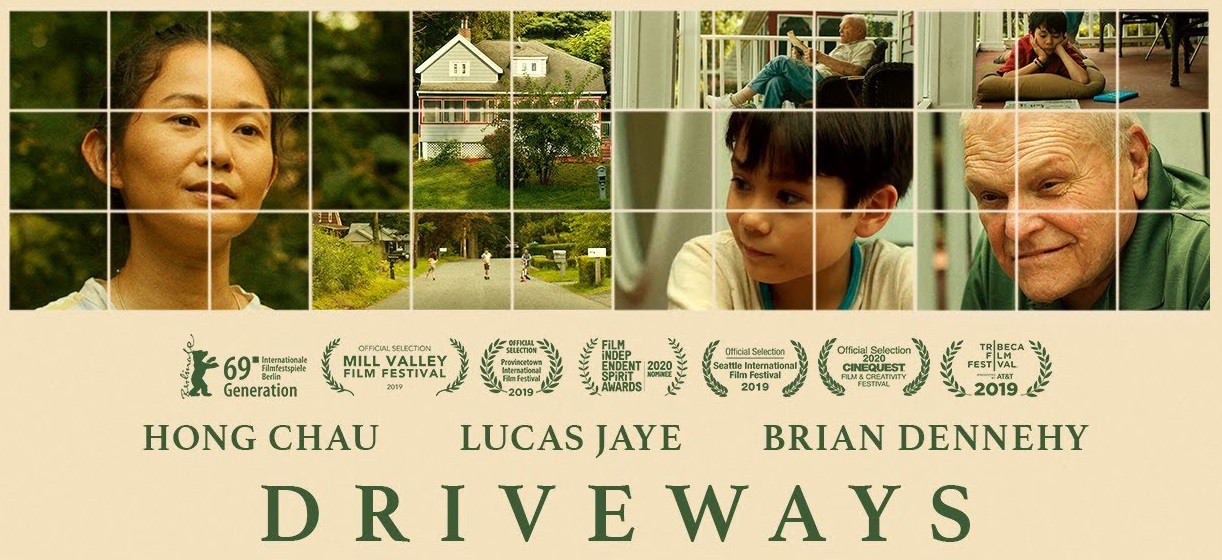
Comments